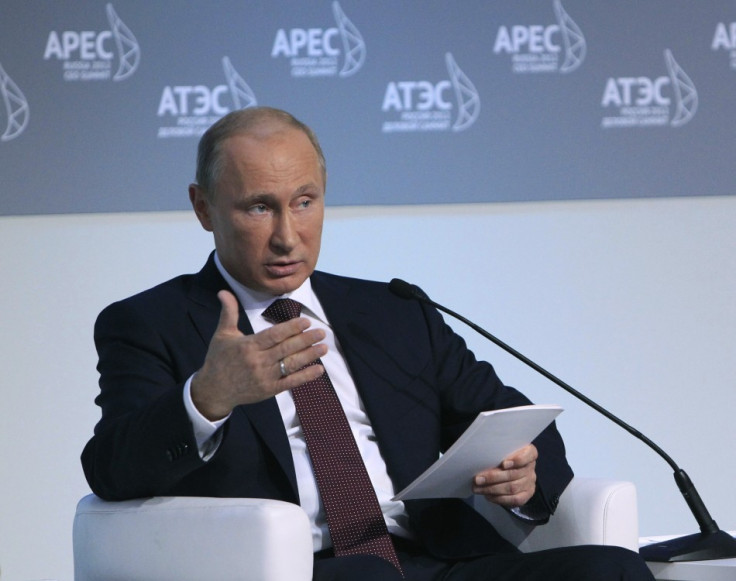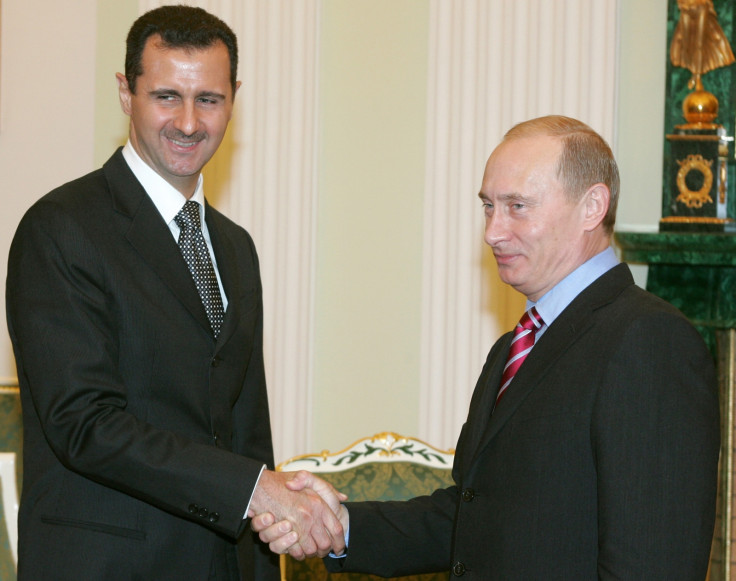Russia does not have the means or desire to defeat Isis in Syria and Vladimir Putin knows it

Since Russia openly declared its military support of the regime of Bashar al-Assad and ramped up its own military presence in Syria, speculation has risen about the future of the conflict and whether Russia will enter the war as it did in Ukraine.
But while some may hope Russia could finally mop up Islamic State (Isis) in Syria, those hopes are most probably in vain. While the Russian military record in Ukraine – both occupying Crimea and invading the Donbass – was impressive and surprised many observers and analysts in the West, there are profound differences between the two theatres of war that will make the Russian situation much more difficult.
After the Russia-Georgia war of 2008 unveiled several shortcomings of the Russian military apparatus, Russia embarked on an ambitious reform that tackled – above all – readiness, deployability, professionalism and sustainability of the Russian armed forces by reorganising its operational structures, logistic system, leadership training and command procedures.
Russia wants to make the West believe that one cannot solve Syria without Russia. This is an illusion.
Russia worked much more on the human factor than on the hardware, because first of all this would take longer time to materialise (hence need to be prioritised) and secondly, achievements can be made without investing large sums of money. The reforms were by and large successful and in 2014, Russia's military options vis a vis Ukraine were enhanced considerably.
But Russia was able to achieve such success in its military reform because it concentrated its efforts on a limited numbers of contingencies: fighting local or regional wars in its immediate neighbourhood (such as Georgia, Ukraine, etc). It did not regard expeditionary warfare as something that the Russian army should be doing.
Hence, for example, it relies on upgraded Soviet era heavy equipment (although upgraded and improved to match Soviet legacy equipment of its neighbours) in it's operations that require a heavy logistical footprint (maintenance, spare parts, fuel and ammunition).
Both in Georgia and Ukraine (as well as possible contingencies in the Baltics), Russia can use rail-roads to move large quantities of goods and the proximity to Russia's home bases facilitates logistics.
In the post-soviet space, Russia can rely on its own terrestric installations for signal intelligence, navigation, airspace control, or flight operations. It can launch and control reconnaissance drones from within its own country. And, as the post-Soviet space is a well-known language realm and states penetrated by Russia's intelligence agencies, it can overcome its shortfalls in strategic reconnaissance and SIGINT by relying on intelligence services.
However in Syria, Russia would have to rely on the Assad regime to provide intelligence. After four years of war, one might raise doubts on whether the regime's services still have such a grip on the country. A broader military engagement could soon unveil the shortfalls in Russia's military.
Even if the Latakia airbase would house Russian strike aircraft, there wouldn't be space for more than one or two squadrons, being capable of flying around 250 to 570 sorties per month on a sustainable basis.
Western coalition forces fly around 2,000 sorties per month and are not able to roll back IS from the air. And one has to note that Western munitions, targeting, systems, and so on are more effective than their Russian counterparts.
Up to now, Russia has deployed about one mechanised battalion and one artillery/air defence battalion in Syria (at least the forces that have yet been recognised). This is not very much. Their primary mission is to provide immediate security for the bases, as well as to train Assad's forces on new equipment and tactics.
However that is not a Russian entry into the war. And there are reasons such an entry seems unlikely. Russia is still a conscript army. Although it can draw on professional soldiers for elite forces as well as deploying small number of combat groups.

But a major entry into the war would require a deployment of conscripts. In Georgia in 2008 and Ukraine in 2014-15, a massive social mobilisation was orchestrated by Russian state media to make the Russian population accept the deployments of larger amounts of Russian troops.
Concerning Ukraine, conscripts at some point had to be tricked to volunteer for the Donbass. But while such a social mobilisation is possible for Crimea or fighting "Ukrainan fascists", Russia will not do the same for Syria.
Russian military officers and planners were always focusing on fighting a conventional land-war against a regional adversary. Unconventional contingencies, such as a Chechen upraise, would not be the primarily interest of the army, but of the troops of the ministry of interior and other powerful ministries.
If the Russian aim was be to conduct a major push-back operation against IS, it would have to deploy the troops of these power ministries in order to secure the rear and fight a counter-insurgency campaign in the regained Sunni areas. However, there are no indications (yet) that any of these ministries have been deployed for Syria.
Therefore it is very unlikely that the Russian effort will substantially change the war. Russia will boost Assad's military capabilities to hold on the territory his forces already control. But anything else would be a big surprise. Hence, Russia is not "ending" the war. More important to the Kremlin is to have a token for its own diplomatic offensive in the West.
Russia wants to overcome its current isolation and, at best, use Syria as a token to gain concessions in Eastern Europe. After solving the Iran issue in the 5+1 format, it wants to make the West believe one cannot solve Syria without Russia. But this by large is an illusion.
Gustav C. Gressel is a visiting fellow at the European Council on Foreign Relations and an expert on security policy. A former soldier in the Austrian army, Gressel worked for the Austrian Ministry of Defence from 2006 to 2014.
© Copyright IBTimes 2025. All rights reserved.






















